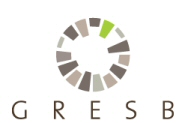Of the 17 companies in the consumer food, food production, and beverages sectors whose environmental and sustainability reporting were analyzed late this year by the Roberts Environmental Center, Anheuser-Busch (U. S.) had the highest overall score. The second highest scoring company was Diageo (Britain), the only other firm whose main products are alcoholic beverages. Both are of mid-size in this group. The largest companies in these sectors, Nestlé and Unilever, both have only average scores. The food production companies which, to the extent that they sell branded merchandise at all have a very limited variety, have by far the lowest scores.
The highest scoring companies achieved their scores in substantially different ways. Anheuser-Busch scored very high in expressions of environmental intent and in environmental reporting which reflects the number of environmental variables on which they published quantitative data. Diageo, Coca-Cola, Nestlé, and Chiquita Brands obtained unusually large portions of their scores by excellence in social reporting. The latter two had particularly low scores in environmental reporting. Diageo and Nestlé were also unusually strong in social performance.
The relatively narrow focus of reporting by Anheuser-Busch, Nestlé, and Chiquita Brands suggests relatively simple paths to improvement.
All materials were scored using the Center’s Pacific Sustainability Index which also provides scores for six subcategories of reporting. The highest scores for these went to Anheuser-Busch (U. S.) for expressed environmental intent, environmental reporting transparency, and expressed social intent . Unilever (Britain) achieved the top score for quantitative environmental performance, Coca-Cola (US) for social reporting transparency, and Diageo (Britain) for quantitative social performance.
The most reported environmental variables were energy and water sources and consumption, and greenhouse gas emissions, but only Coca-Cola and Anheuser-Busch addressed climate change in any detail. The most reported social information was protection of the human environment in and nearby corporate facilities.
These findings are based on the information available on the web sites of all companies in the consumer foods sector of the 2004 Fortune Global 500 and all companies in the food production and beverages sectors of the 2004 Fortune Global 500 and Fortune 1000 as of June 15, 2005. The Fortune 1000 includes only American firms, so all of the smallest firms in this sample are American.
Skip to content



